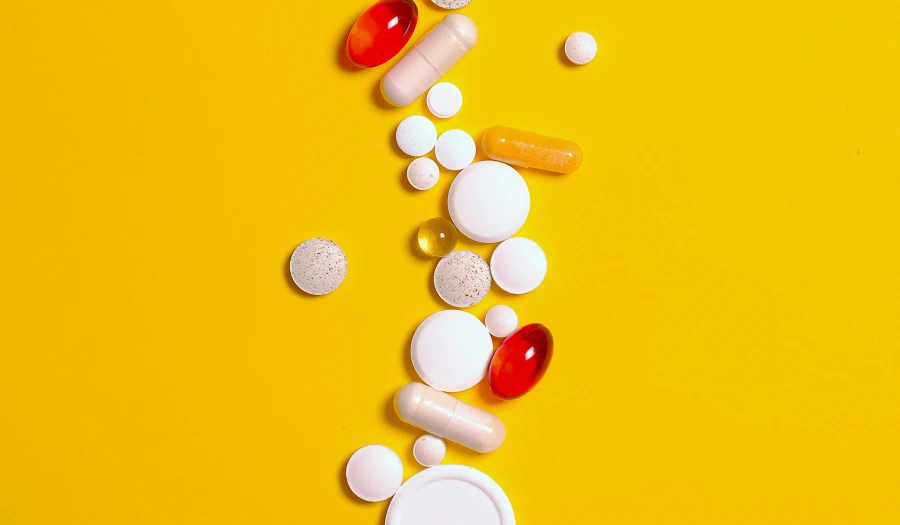
Antibiotics have been a game-changer in modern medicine, offering life-saving treatments for bacterial infections. However, while antibiotics provide numerous benefits, they can also have a significant impact on our gut health, particularly the delicate balance of our gut microbiome. In this blog, we will delve into the relationship between antibiotics, gut health, and the microbiome, and discuss strategies for preserving gut health during and after antibiotic treatment.
The Impact of Antibiotics on Gut Health and the Microbiome
Antibiotics work by either killing bacteria or inhibiting their growth. While this is beneficial for treating bacterial infections, antibiotics can also target the beneficial bacteria in our gut, leading to a disruption of the delicate balance within our gut microbiome.1,2 This disruption can have several consequences:
Reduced diversity of gut bacteria: Antibiotics can significantly reduce the diversity of bacteria within the gut, as they are unable to differentiate between harmful and beneficial bacteria. 1,2 This can lead to a decrease in the overall number of beneficial bacteria, which can impact gut health and function.
Imbalance in the gut microbiome: The loss of beneficial bacteria due to antibiotic use can create an imbalance in the gut microbiome, allowing harmful bacteria to overpopulate and thrive. 1,2 This imbalance, known as dysbiosis, can contribute to various health issues, including digestive problems, weakened immune function, and increased susceptibility to infections.
Increased risk of infection: A disrupted gut microbiome can make individuals more susceptible to infections, as the beneficial bacteria that help protect against harmful pathogens are diminished. In particular, antibiotic use has been associated with an increased risk of Clostridioides difficile (C. diff) infection, a potentially severe bacterial infection that can cause diarrhoea and life-threatening inflammation of the colon.3
Strategies for Mitigating the Impact of Antibiotics on Gut Health and the Microbiome
While antibiotics are sometimes necessary to treat bacterial infections, there are steps individuals can take to help mitigate the potential side effects on gut health and the microbiome:
Use antibiotics responsibly: Only use antibiotics when prescribed by a healthcare professional and deemed necessary. Always follow the prescribed dosage and duration, as taking antibiotics for longer than needed or not completing the full course can contribute to antibiotic resistance and further disruption of the gut microbiome.
Take probiotics during and after antibiotic treatment: Consuming probiotics, either in the form of supplements or probiotic-rich foods, can help replenish the beneficial bacteria in the gut and restore balance to the gut microbiome. Speak to your healthcare professional about the best probiotic strains and timing for taking probiotics during and after antibiotic treatment.
Consume prebiotic-rich foods: Prebiotics are non-digestible fibers that serve as food for probiotics, promoting their growth and activity in the gut. Consuming prebiotic-rich foods, such as onions, garlic, asparagus, and bananas, can help support the recovery of the gut microbiome after antibiotic treatment.
Maintain a gut-friendly diet: A diverse diet rich in fruits, vegetables, whole grains, legumes, nuts, and seeds can provide the gut microbiome with the nutrients it needs to thrive.4 Emphasize plant-based foods and minimize processed and sugary foods to support a balanced gut microbiome.
Conclusion
Understanding the impact of antibiotics on gut health and the microbiome is crucial for maintaining a healthy balance of beneficial bacteria and promoting overall well-being. By using antibiotics responsibly, incorporating probiotics and prebiotic-rich foods into your diet, and maintaining a gut-friendly lifestyle, you can help mitigate the potential side effects of antibiotic use on gut health and the microbiome. By taking these proactive steps, you can support.
References
- Ramirez, J., Guarner, F., Bustos Fernandez, L., Maruy, A., Sdepanian, V. L., & Cohen, H. (2020). Antibiotics as Major Disruptors of Gut Microbiota. Frontiers in cellular and infection microbiology, 10, 572912. https://doi.org/10.3389/fcimb.2020.572912
- Blaser M. (2011). Antibiotic overuse: Stop the killing of beneficial bacteria. Nature, 476(7361), 393–394. https://doi.org/10.1038/476393a
- Spigaglia P. (2016). Recent advances in the understanding of antibiotic resistance in Clostridium difficile infection. Therapeutic advances in infectious disease, 3(1), 23–42. https://doi.org/10.1177/2049936115622891
- Román, G. C., Jackson, R. E., Gadhia, R., Román, A. N., & Reis, J. (2019). Mediterranean diet: The role of long-chain ω-3 fatty acids in fish; polyphenols in fruits, vegetables, cereals, coffee, tea, cacao and wine; probiotics and vitamins in prevention of stroke, age-related cognitive decline, and Alzheimer disease. Revue neurologique, 175(10), 724–741. https://doi.org/10.1016/j.neurol.2019.08.005
